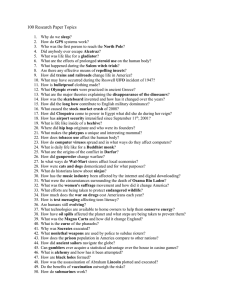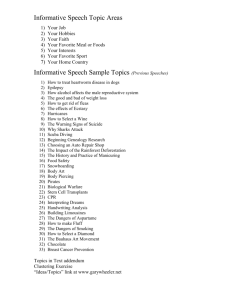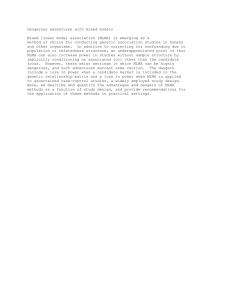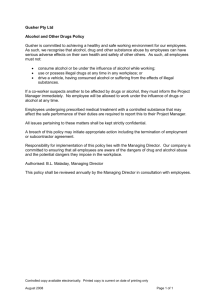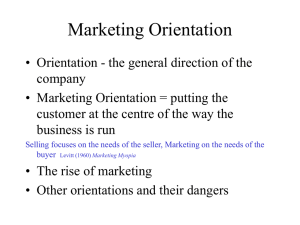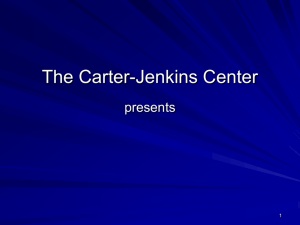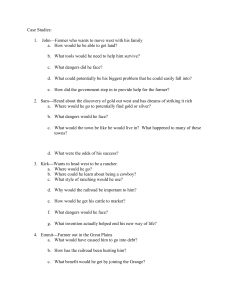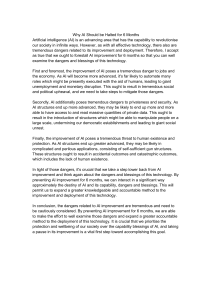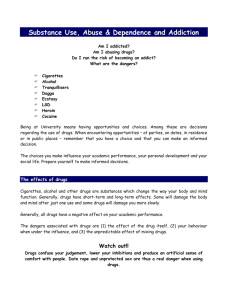Paper 4 - Work and/or evaluating and controlling technology
advertisement
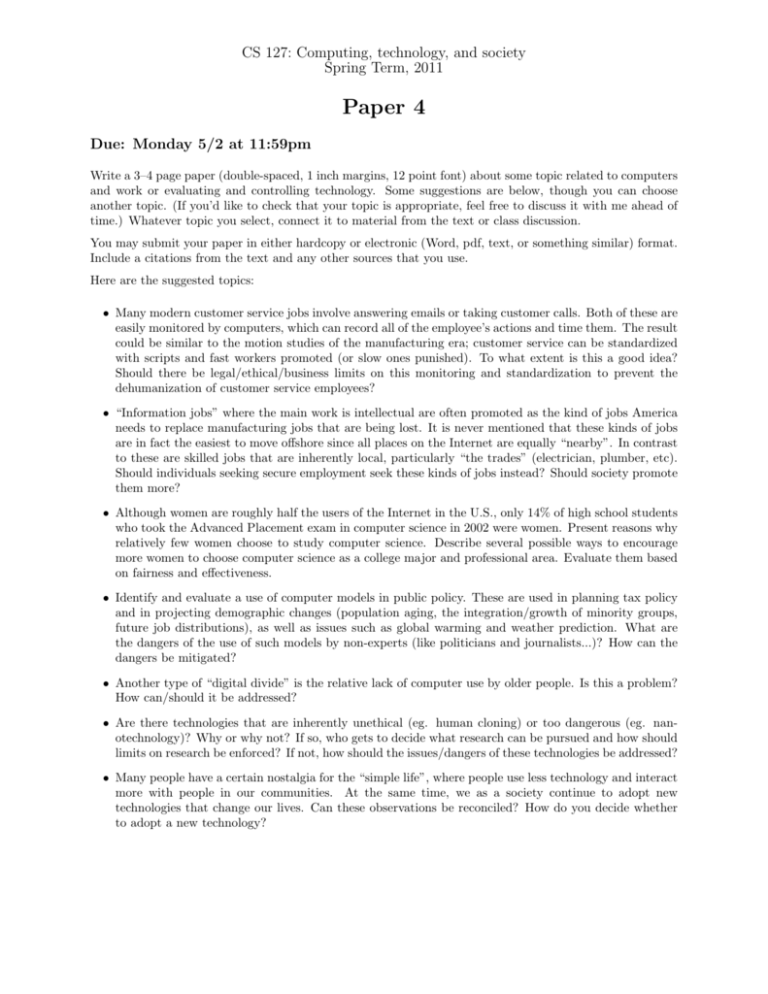
CS 127: Computing, technology, and society Spring Term, 2011 Paper 4 Due: Monday 5/2 at 11:59pm Write a 3–4 page paper (double-spaced, 1 inch margins, 12 point font) about some topic related to computers and work or evaluating and controlling technology. Some suggestions are below, though you can choose another topic. (If you’d like to check that your topic is appropriate, feel free to discuss it with me ahead of time.) Whatever topic you select, connect it to material from the text or class discussion. You may submit your paper in either hardcopy or electronic (Word, pdf, text, or something similar) format. Include a citations from the text and any other sources that you use. Here are the suggested topics: • Many modern customer service jobs involve answering emails or taking customer calls. Both of these are easily monitored by computers, which can record all of the employee’s actions and time them. The result could be similar to the motion studies of the manufacturing era; customer service can be standardized with scripts and fast workers promoted (or slow ones punished). To what extent is this a good idea? Should there be legal/ethical/business limits on this monitoring and standardization to prevent the dehumanization of customer service employees? • “Information jobs” where the main work is intellectual are often promoted as the kind of jobs America needs to replace manufacturing jobs that are being lost. It is never mentioned that these kinds of jobs are in fact the easiest to move offshore since all places on the Internet are equally “nearby”. In contrast to these are skilled jobs that are inherently local, particularly “the trades” (electrician, plumber, etc). Should individuals seeking secure employment seek these kinds of jobs instead? Should society promote them more? • Although women are roughly half the users of the Internet in the U.S., only 14% of high school students who took the Advanced Placement exam in computer science in 2002 were women. Present reasons why relatively few women choose to study computer science. Describe several possible ways to encourage more women to choose computer science as a college major and professional area. Evaluate them based on fairness and effectiveness. • Identify and evaluate a use of computer models in public policy. These are used in planning tax policy and in projecting demographic changes (population aging, the integration/growth of minority groups, future job distributions), as well as issues such as global warming and weather prediction. What are the dangers of the use of such models by non-experts (like politicians and journalists...)? How can the dangers be mitigated? • Another type of “digital divide” is the relative lack of computer use by older people. Is this a problem? How can/should it be addressed? • Are there technologies that are inherently unethical (eg. human cloning) or too dangerous (eg. nanotechnology)? Why or why not? If so, who gets to decide what research can be pursued and how should limits on research be enforced? If not, how should the issues/dangers of these technologies be addressed? • Many people have a certain nostalgia for the “simple life”, where people use less technology and interact more with people in our communities. At the same time, we as a society continue to adopt new technologies that change our lives. Can these observations be reconciled? How do you decide whether to adopt a new technology?

